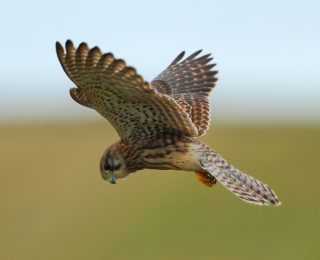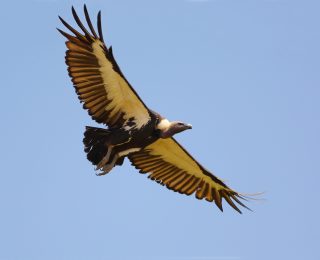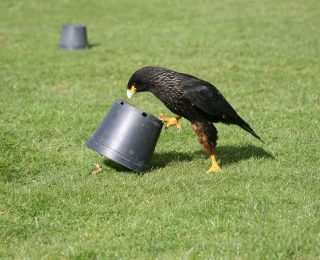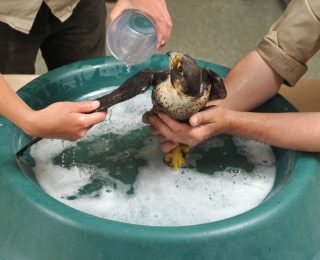
The threats facing bird of prey populations around the world are numerous. A majority of species are under pressure to a lesser or greater extent. Apart from local and/or species specific threats, widespread threats include:
The combined impact of these and other threats presents a poor prognosis for many species. The conservation actions used to defend against these threats are varied and often innovative, but must be based on the results of focused research. As a result, the operational philosophy of the Hawk Conservancy Trust is one of evidence-based conservation management. This is reflected in the variety of projects undertaken by the Trust and this includes a number of research projects.


The International Vulture Programme (IVP) is a multi-partner initiative that focuses efforts on the research and conservation of eight vulture species in eight countries.


